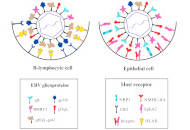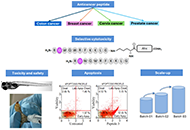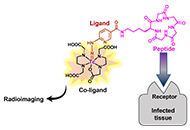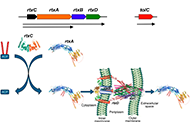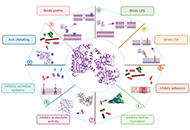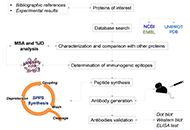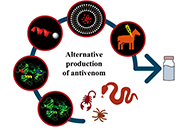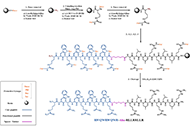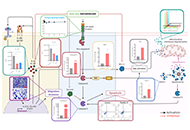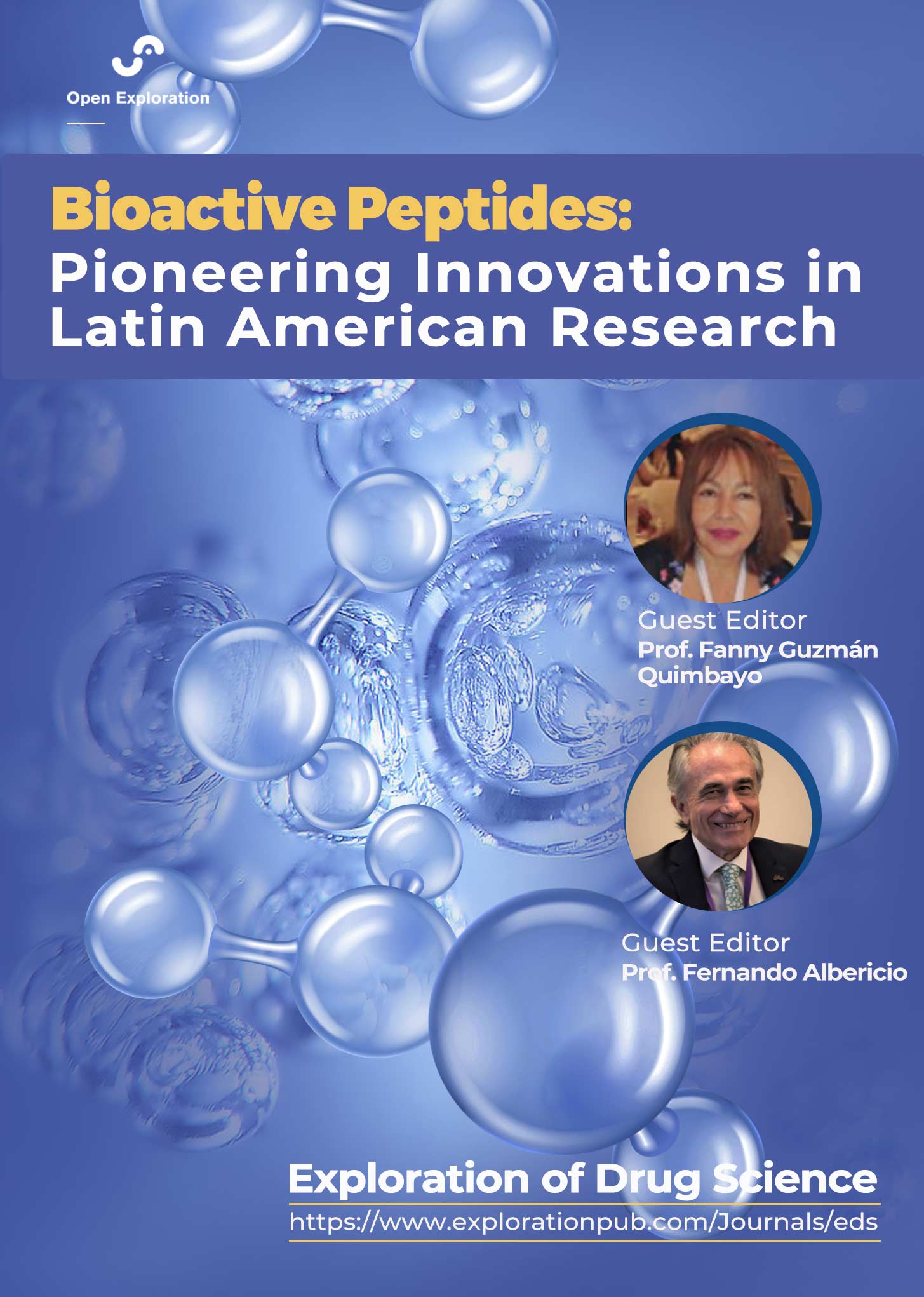
Bioactive Peptides: Pioneering Innovations in Latin American Research
Guest Editors
Fanny Guzmán Quimbayo E-Mail
Senior Researcher at the Curauma Biotechnology Center (NBC) at the Pontifical Catholic University of Valparaíso, Valparaiso, Chile
Fernando Albericio E-Mail
Research Professor, School of Chemistry, Universities of KwaZulu-Natal, Durban, South Africa; Full Professor, Department of Organic Chemistry, Universidad de Barcelona, Barcelona, Spain
About the Special lssue
Bioactive peptides have gained increasing significance in scientific research and biomedical innovation, emerging as viable alternatives in the battle against antibiotic resistance. Their versatile applications extend to various sectors, including human health, cosmetics, nutrition, and agriculture, addressing challenges in both animal and plant health.
In Latin America, research and applications in this area are becoming more relevant, marking a significant milestone in the region and opening doors to innovative therapies and potential pharmaceutical developments. Multiple research groups with recognized trajectories approach this work from various perspectives, utilizing peptides as essential tools in both basic and applied research. Their endeavors encompass a wide array of areas, involving bioprospecting conducted both in silico—leveraging the development and accessibility of bioinformatics tools and artificial intelligence—and experimentally searching for bioactive peptides using the richness of nature as a source.
Peptide synthesis, a mature technique subject to constant optimization in both methodologies and applications, becomes a powerful ally in this area. It plays a crucial role in verifying peptide functionality and in designing and producing new molecules with improved properties. It facilitates the development of novel products, poised for application in various industries, thereby promoting their commercialization.
Keywords: peptide synthesis; antimicrobial peptides; model homopeptides; synthesis optimization; tea-bag multiple synthesis
Published Articles
